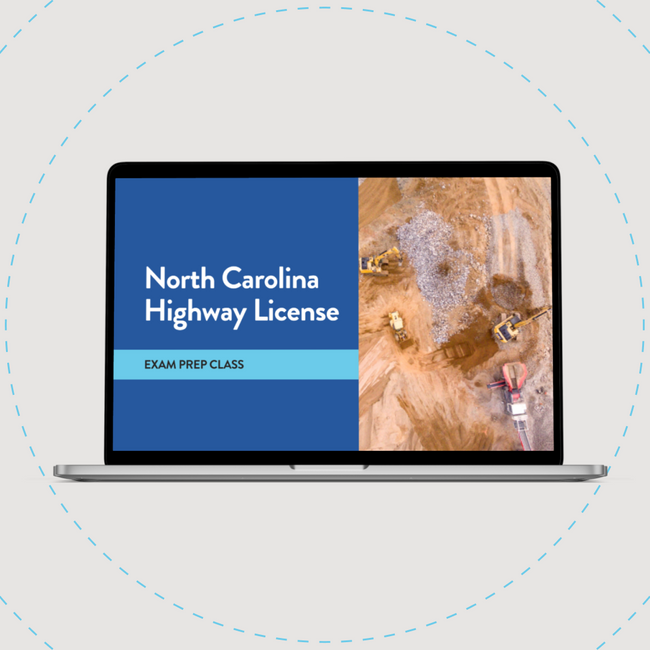This class will prepare you to take the North Carolina Highway Contractor Licensing Exam at PSI. Online course content is delivered to you immediately upon purchase so you can begin your studies today!
Our online course includes book highlighting guides and practice quizzes for each book and subject area of the exam, as well as unlimited attempts in our North Carolina Highway Exam Simulator that mirrors subject areas, number of questions, and format/layout of the real exam at PSI. Our practice exams are dynamic and pull new questions from our extensive question bank each attempt, so you can keep practicing navigating your books within a time limit until you feel prepared for the real open-book exam.




